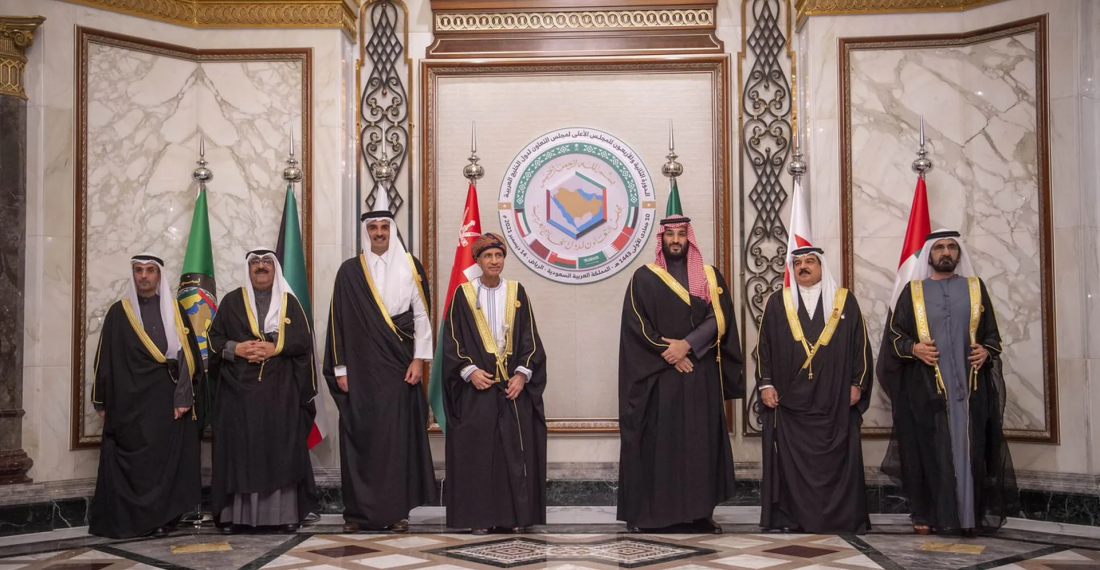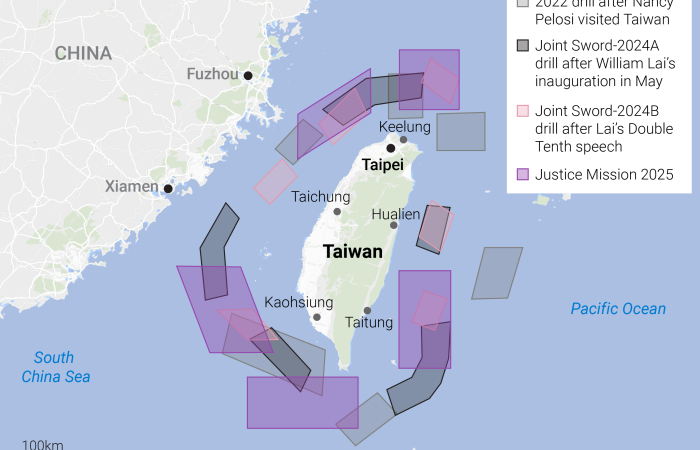This editorial first appeared in the 9 May 2023 issue of our newsletter Arabia Concise. If you would like to subscribe to Arabia Concise, or any other of our newsletters, please click here.
The foreign policy of GCC states may be more flexible and pragmatic these days than ever before, but in times of danger reliable partnerships come to the fore, writes commonspace.eu in this editorial. For the Gulf countries building the partnerships suitable for the challenges of the 21st century remains work in progress.
Gulf countries – some of them at least – are cherishing this moment of renewed big power rivalry in international relations, and the perceived ability this provides to small and medium-sized countries to carve a niche for themselves in the international system, and the ensuing attention given to them by the world powers as a result of this competition.
This attention is not simply a reflection of the importance of the Gulf as an energy supplier – that has been a fact for many decades – but is more related to the new confidence amongst a younger generation of leaders in the Gulf countries who feel they have enough freedom of manoeuvre that they can tease and tempt their bigger partners with little risk, and they are clearly enjoying the moment.
Some of the goings-on of the last few days reflect this new reality. On Sunday (7 May) a discreet read-out from the White House in Washington stated that US National Security Advisor Jake Sullivan met with Saudi Prime Minister and Crown Prince Mohammed bin Salman, UAE National Security Advisor Sheikh Tahnoon bin Zayed Al Nahyan, and National Security Advisor of India Ajit Doval in Saudi Arabia “to advance their shared vision of a more secure and prosperous Middle East region interconnected with India and the world.” Mr. Sullivan also held bilateral meetings with the Crown Prince, Sheikh Tahnoon, and Mr. Doval to discuss bilateral and regional matters.
The statement added that with Prime Minister and Crown Prince Mohammed bin Salman, Mr. Sullivan “reviewed significant progress in talks to further consolidate the now 15-month long truce in Yemen and welcomed ongoing UN-led efforts to bring the war to a close, as well as covering a range of other issues. Mr. Sullivan thanked the Crown Prince for the support Saudi Arabia has provided to U.S. citizens during the evacuation from Sudan. The four delegations agreed to maintain regular consultations and follow up on the matters discussed throughout the day.”
There is no longer any room for western complacency when it comes to Gulf affairs
Apart from the UK, the US and India have been the most prominent partners of GCC countries for many years. A joint US-India strategy in the Gulf can be a game-changer.
For some of the Gulf Arabs, London remains the closest ally. The participation of Gulf royalty at the coronation of King Charles III was also somewhat telling. Of course all six countries were present with senior members of the ruling families, but it was Qatar and Bahrain that were present with their heads of state.
But there is no longer any room for western complacency when it comes to Gulf affairs. This week it was also announced that the United Arab Emirates (UAE) and Kuwait were granted dialogue partner status in the Shanghai Cooperation Organization (SCO) in what is being seen as further boosting China's inroads in the Arab Gulf region. This comes in the wake of the Iran-Saudi deal brokered by Beijing only a few weeks ago.
Referring to his country’s new status within the SCO, UAE Minister of Foreign Affairs and international cooperation, Sheikh Abdullah bin Zayed Al Nahyan, highlighted the shared common goals with the organization.
“In the coming period, the UAE will seek to make significant strides in its engagement with the SCO and its member states. As a people and country, we are delighted at being welcomed as a dialogue partner in an organization whose global influence and importance only continue to grow,” he said, according to the state-owned Emirates News Agency.
Gulf countries are currently also pushing to get membership within the BRICS bloc, which brings together Brazil, Russia, India, China, and South Africa.
Those trying to find some ideological basis for the current foreign policy of Gulf States are unlikely to find any. All six countries in their own way have identified pragmatic paths in their foreign policy; their approach is more flexible than has been the case ever before. The region has big ambitions and it is clear that it will work with whoever can contribute to realise these ambitions. For example, on nuclear issues the UAE has made it clear it has no hesitation to work with both Russia and China.
Plenty of risks and dangers ahead
Many consider that the policy being pursued by the Arab Gulf countries is wise, and is best suited for the current circumstances. Recent efforts at sorting out problems in the region – including those between the GCC countries themselves, problems with Iran, and the conflicts in Syria and Yemen – were hailed by the international community as positive steps. But the region remains volatile, and there are plenty of risks and dangers ahead.
Events in Sudan in the last weeks are a case in point. Sudan, just across the water on the other side of the Red Sea, has long historical connections with the Arabian peninsula and its people. The civil war that has erupted there in the last weeks has caused concern in Riyadh, Abu Dhabi and elsewhere. The Saudis, in their new role as peacemakers which they are cherishing, have taken the lead in trying to bring the conflicting sides in Sudan together, working closely with the US and others. But Sudan can become a hotbed of instability which can create a ripple effect across the Horn of Africa and beyond. If Riyadh really wants to impact the situation it needs to be prepared to do some heavy lifting.
The foreign policy of GCC states may be more flexible and pragmatic these days than ever before, but in times of danger reliable partnerships come to the fore. For the Gulf countries building the partnerships suitable for the challenges of the 21st century remains work in progress.






